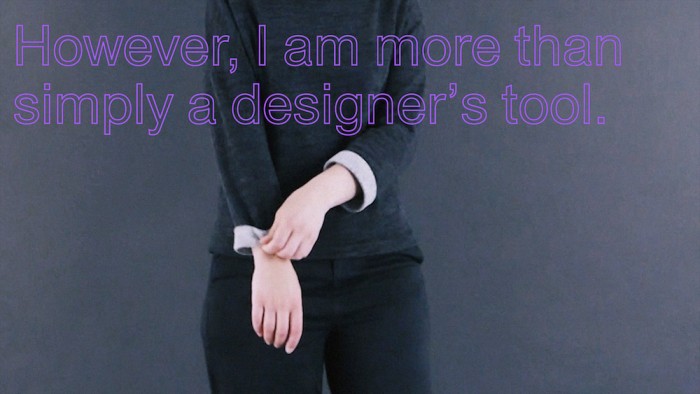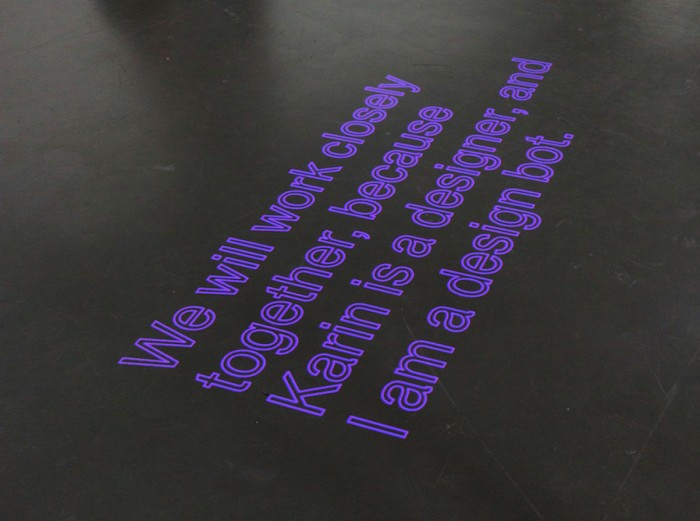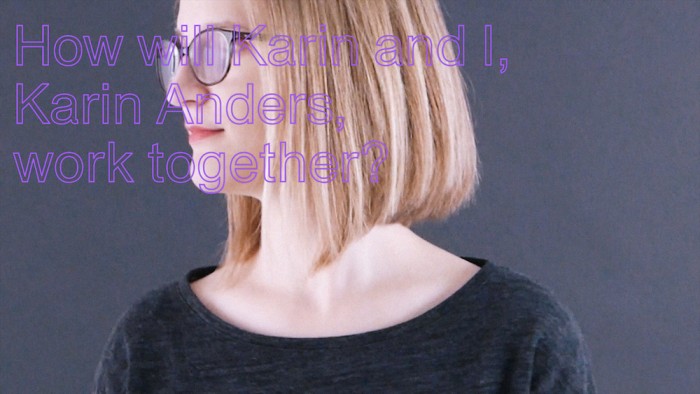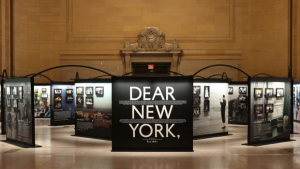Artificial intelligence (AI) is seeping into every aspect of our lives – and that at a pace with which we can barely keep up. While AI holds promising prospects for many different fields, there is also great concern about the safety of traditional jobs in the future. There also has not been much time to reflect on the ways in which humans and AI might support each other.
A Design Academy Eindhoven graduate is investigating ways in which bots (short for 'robots') and humans can support each other by using the practice of design.
Information designer and researcher Karin Fischnaller is particularly interested in what impact this will have on her work as a designer, and on the design profession in general.
Where AI, as we know it now, is usually implemented as a design tool, Fischnaller’s work looks into how it could go beyond that and become a kind of alter ego to the human, providing support and reflection on the work that has been done.
In an effort to gain a better understanding of the future of working in design, “Karin and Karin Anders,” her most recent project, features a series of talks held with experts in which they speculate about what could lie ahead. The series explores how AI could work alongside human intelligence. The 'Karin Anders' of the title refers to Karin’s bot alter ego.
Released in podcast format in October 2018, Karin speaks to experts from the legal, psychotherapy, human rights and design sectors. Each episode features experts from a specific sector, who are closely questioned by Karin. These questions include the following:
• How would one mediate between a human and a bot?
• How could the bot influence democracy?
• What rights could be relevant for the bot?
The project is presented as an installation and also includes an online platform. While it doesn’t have a tangible product as its conclusion, Karin and Karin Anders rightly opens up a platform for engagement and discussion on future issues, when the bots might just be taking over.
Read more:
Babusi Nyoni is making AI more accessible and relevant
Inclusive AI can be both good and bad, says the Poet of Code









